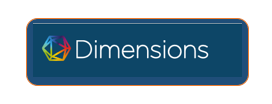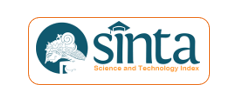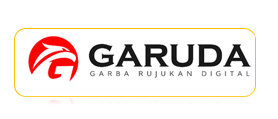Digital Divide Perempuan Indonesia
Abstract
Kata kunci: teknologi komunikasi dan informasi, digital divide, perempuan Indonesia
Abstract: Information dan communication technology has bought changes in our society. Along with its development, many concequences occur in developing countries as well as Indonesia. Women role in the development of information and communication technology is lesser than men. There are many factor causing the digital divide of Indonesian women i.e. skill and education level, language problem, lack of time, sexist stereotype, social and cultural norms. Considering to this issue, it is important to take action to ensure women in Indonesia to be more active and involve in the development of information and communication technology. There are many ways to decrease the digital divide of Indonesian women i.e. information literacy, eliminating gender discrimination, transformative and gender responsive policy, increasing women skill and com-petency trough education and training.
Key words: Information dan communication technology, digital devide, Indonesian women.
References
Dholakia, R.R., N. and Kshetri, N. 2003. Gender and Internet Usage. University of Rhode Island
Enochsson, A. 2005. A Gender Perspective On Internet Use: Consequences For Information Seeking. The Interactive Institute, Stockholm, Information Research, 10(4) paper 237
Gefen, D. dan Straub, D.W. 1997. Gender Differences in the Perception and Use of E-mail: An Exten-sion to the Technology Acceptance Model. MIS Quarterly.
Hancock, Vicki E. 2004. Information Literacy for Lifelong Learning, (online), (http://www.li-braryinstruction.com/informationliteracy.html, diakses 10 Mei 2016.
Haag dan Keen. 1996. Information Technology: Tomorrow’s Ad-vantage Today. Hammond: Mcgraw-Hill College
ITU. 2014. Measuring the Information So-ciety Report. Geneva: Infor-mation and Technology Union.
Kompas, Kamis 31 Maret 2016
Martin, E. 1999. Managing Information Technology What Managers Need to Know (3rd ed). New Jersey: Pearson Education International.
OECD. 2001. OECD Annual Report 2001. Paris: OECD Publishing.
Parayil, G. 2005. The Digital Divide and Incresing Returns; Contradiction of Information Capitalism. The Information Society, No. 21
Ramilo, C. 2002. National ICT Policies and Gender Equality Regional Perspective: Asia”, United Nations Division for the Advancement of Women (DAW) Expert Group Meeting on “Information and communication technologies and their impact on and use as an instrument for the advancement and empowerment of women”.
Unesco. 2003. The Prague Declaration "Towards An Information Literate Society", (online), (http://www.nclis.gov/li-binter/infolitconf&meet/postinfolitconf&meet/praguedeclaration.pdf diakses 8 Mei 2016)
UNDP. 2011. Human Development Report – Sustainability and Equity: A Better Future for All.
Williams dan Sawyer. 2003. Using Information Technology: A Practical Introduction to Computers and Communications. London: Career Education
Refbacks
- There are currently no refbacks.
Copyright (c) 2017 Neni Wahyuningtyas, Khofifatu Rohmah Adi
Editorial office:
History Department, Faculty of Social Science,
Universitas Negeri Malang
Jl. Semarang No.5 Kota Malang 65145,
Phone. (0341) 551312,
email: jsb.journal@um.ac.id
Website: http://journal2.um.ac.id/index.php/sejarah-dan-budaya
P-ISSN 1979-9993
E-ISSN 2503-1147

This work is licensed under a CC BY SA 4.0.










